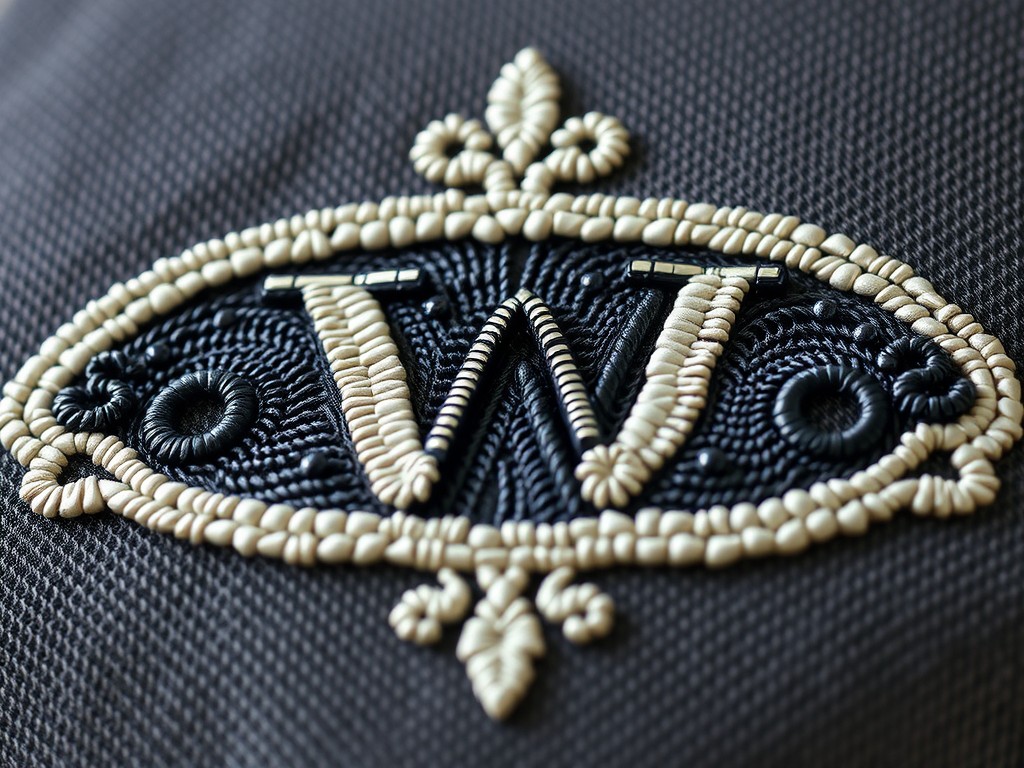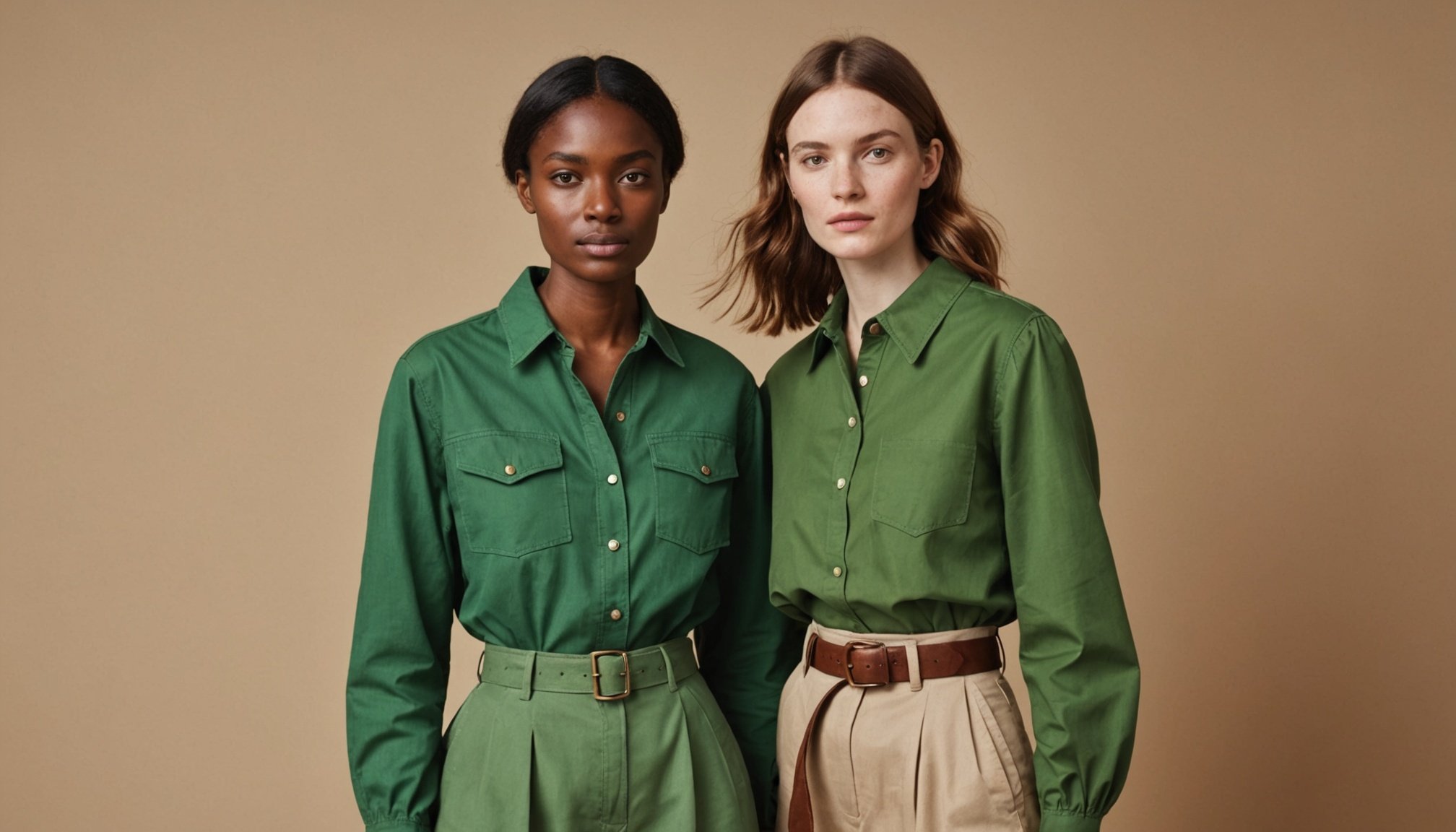Overview of Sustainable Fashion in the UK
Sustainable fashion seeks to minimise the negative environmental impact of clothing production while promoting ethical practices. In the UK fashion industry, this movement has gained momentum with an increasing number of eco-friendly brands. Significant emphasis is placed on reducing waste, employing sustainable materials, and ensuring fair labor conditions.
Current trends spotlight the infusion of sustainable fashion into mainstream markets. Consumers gravitate towards styles that combine aesthetics with eco-conscious attributes. The adoption of renewable and recycled materials, such as organic cotton and post-consumer polyester, typifies this fashion-forward approach.
This might interest you : Mastering Wool Selection: Your Essential UK Guide to Crafting the Ideal Custom Knit Sweater;230Unlock Your Signature Style: Elevate Your Wardrobe with Classic British Plaids!
Consumer interest in sustainability has surged, marking a pivotal shift in behavior. Shoppers increasingly prioritise eco-friendly options, aligning purchases with personal values. This shift is supported by transparent brand practices and impactful eco-initiatives, encouraging a widespread embrace of sustainability.
The significance of sustainable fashion lies not only in its environmental benefits but also in reshaping consumer expectations. As eco-friendly brands continue to innovate, the fashion landscape evolves, making sustainability an integral facet of the UK’s fashion identity. This movement inspires both industry leaders and budding designers to prioritise ethics and eco-friendly practices, fostering a responsible and conscious fashion ecosystem.
In parallel : Discover the best uk brands crafting custom scarves: your go-to guide for personalized style
Notable UK Brands Leading the Change
The UK fashion industry showcases pioneering UK brands at the forefront of the sustainable clothing movement. These eco-friendly fashion leaders not only spark innovation but also shape the industry’s direction.
Brand 1: The Eco Warrior
The Eco Warrior is renowned for its unique sustainable practices and comprehensive product range. Central to its mission statement is a commitment to reducing environmental impact, marked by its use of organic materials and zero-waste strategies. Their initiatives reverberate throughout the fashion scene, setting high standards for sustainable practices.
Brand 2: Green Threads
Green Threads excels with its use of innovative materials and eco-conscious production techniques. It engages deeply with community-led eco-initiatives, fostering a sense of shared responsibility. Compared to traditional fashion brands, Green Threads stands out as a paragon of environmental diligence and innovation.
Brand 3: Conscious Couture
Focused intently on ethical sourcing and fair labor practices, Conscious Couture offers niche product lines that underscore environmental benefits. This commitment has not gone unnoticed, earning the brand accolades for its sustainability efforts. Its influence persuades the industry to adopt more ethical frameworks and practices, reinforcing the importance of responsible fashion.
Innovations in Sustainable Practices
In the evolving landscape of innovative fashion, brands are embracing sustainable materials to redefine production methods. Pioneering companies are utilising resources like organic cotton, bamboo, and even recycled plastics. These materials promise durability while reducing environmental footprints, ensuring that fashion doesn’t compromise ecological integrity.
Advanced technology has facilitated significant strides in eco-friendly fashion production. Processes such as waterless dyeing and 3D knitting minimise resource use, boosting efficiency and sustainability. These advancements not only lighten the ecological load but also open doors to creativity, allowing designers to explore new possibilities in sustainable fashion.
Furthermore, eco-initiatives are setting a benchmark for innovative recycling practices. Brands are turning to closed-loop systems, recovering garments at the end of their life to produce new materials, creating a cycle that respects nature. Such efforts are transforming waste into opportunity, exemplifying how the industry can support a more sustainable future.
Incorporating these sustainable practices denotes a proactive approach towards planetary health. It reflects a hopeful shift, where fashion’s innovative strides converge with the pressing need for environmental responsibility. Through these measures, the promise of a greener industry is not just aspirational but tangible.
Consumer Insights and Trends
The rise of eco-conscious shopping indicates a notable shift in consumer behaviour towards sustainable fashion. Recent statistics reveal that a significant percentage of UK shoppers are willing to pay more for products from eco-friendly brands. This trend is largely driven by increased awareness, aided by social media platforms that amplify the conversation around sustainable fashion.
Shifting Consumer Preferences
Social media serves as a pivotal force, catapulting sustainability into the limelight. Platforms like Instagram and TikTok showcase sustainable styles, encouraging fashion enthusiasts to adopt eco-conscious shopping habits. Such digital influence has led to a tangible shift where eco-friendly choices are no longer niche but mainstream.
Barriers to Sustainable Fashion Adoption
Despite growing interest, several barriers persist. Common misconceptions about sustainable fashion, particularly regarding quality and aesthetic appeal, often deter potential buyers. Furthermore, the higher price points associated with sustainable garments pose accessibility challenges. As brands strive to overcome these hurdles, the industry continues to explore innovative strategies to make sustainable fashion more appealing and attainable.
Future of Sustainable Fashion in the UK
Looking ahead, sustainable fashion’s future seems promising. The role of government regulations and incentives will likely grow, supporting the expansion of eco-friendly practices. Furthermore, ongoing consumer education is crucial in fostering a deeper understanding and appreciation for sustainability in fashion.











